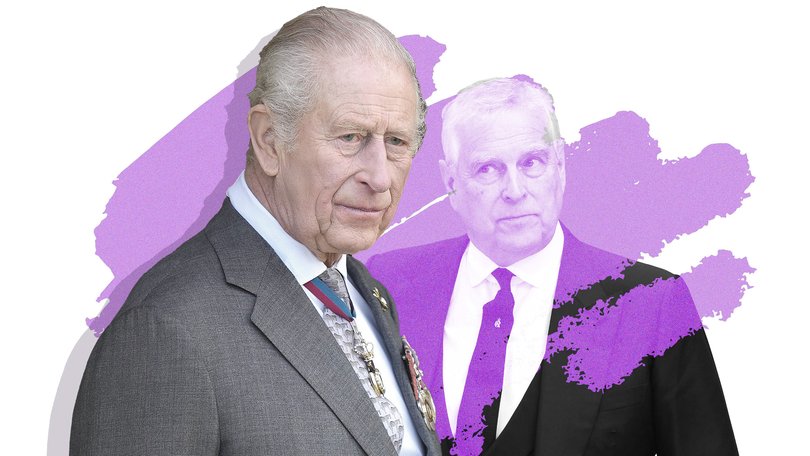JENI O’DOWD: Ruthless King Charles steps in to soothe royal’s pain over Andrew scandal
JENI O’DOWD: Andrew’s scandal could have fomented republican ideology in Australia. Charles’ deft handling has prevented that.

I’ve never quite recovered from that moment in the 1990s when we learned that the then-prince Charles, married to the doomed Diana while secretly in love with Camilla, gave the world a level of royal intimacy none of us wanted to know..
The now infamous Camillagate, where private phone conversations between the pair were made public, did not become the argument for a republic. Still, it was the punchline that made the argument easier to tell.
When Australia held its referendum on the issue under prime minister John Howard in 1999, the scandal was still a reminder that the head of state Australians would be voting to keep or replace was part of a family whose private lives were global entertainment.
Sign up to The Nightly's newsletters.
Get the first look at the digital newspaper, curated daily stories and breaking headlines delivered to your inbox.
By continuing you agree to our Terms and Privacy Policy.But did Prime Minister Anthony Albanese underestimate the savvy of King Charles, who has, after all, learnt the subtle art of diplomacy from the best?
Was our republic-loving, left-leaning PM outplayed and outmanoeuvred?
Last week, in a decision almost unheard of in royal history, the King stripped his own brother of the title of prince, a punishment so severe that it has no modern precedent.
Royals have been scandalous before, but they’re rarely publicly disowned. Even the late Queen, known for her steel behind the smile, never took that step.
For King Charles, it was an act of ruthless symbolism. In one sweep, he distanced the Crown from Andrew’s disgrace and reasserted control over an institution many thought was crumbling.
And he timed it perfectly. Only months earlier, Charles met with the leaders of Australia, New Zealand and Canada, the three largest nations where he remains head of state.
Had he acted before those handshakes and photo ops, republican movements would have feasted on the scandal. But by locking in goodwill first, the King turned what could have been a global embarrassment into a local clean-up.
Remember when the PM met King Charles at Balmoral in September? After what he called “a rather wonderful lunch”, he confirmed he did not raise the matter of a republic.
The next day, he went further on the ABC, stating that there would be no referendum on a republic while he was Prime Minister. Which will be for many long and dreary years, when you look at the state of the Coalition.
Checkmate to King Charles. With Andrew’s disgrace still smouldering and Harry and Meghan performing their drama abroad, the King doesn’t need a Commonwealth ally fanning the flames with talk of another republic referendum.
Earlier this year, the King also visited Canada and met with Canadian Prime Minister Mark Carney, where the visit was seen as reaffirming Canada’s long-standing ties with the monarchy. And New Zealand’s Prime Minister, Christopher Luxon, met with the King in London in April.
King Charles did not set foot in any of the smaller Commonwealth countries in recent months. While there’s little serious movement toward a republic in the three largest Commonwealth realms — Australia, New Zealand, and Canada — momentum is quietly building elsewhere.
Several of the smaller nations where King Charles is head of state, including Jamaica, Belize, Antigua and Barbuda, have either announced formal plans or begun talks about severing ties with the British Crown.
By cosying up to the three Commonwealth leaders before taking decisive action at home, King Charles bought breathing space for the monarchy.
It was a deft one-two: first, charm the family of nations; then, discipline the family at home.
In 2019, Albanese told the Australian Republic Movement that “a modern Australian republic is an idea whose time has come … and that eventually, our head of state will be one of our own.”
Fast-forward to today, and he’s sitting through a royal audience at a “charming lunch”, politely nodding while King Charles secures the loyalty of the realm.
I know there is no big groundswell for Australia to become a republic and have its own head of state. However, the polls also indicate a large undecided segment, and younger Australians are more inclined to support a republic.
King Charles has turned out to be a monarch of method rather than mystique. His reign so far has been about restoration of discipline, order and quiet authority.
He understands what many elected leaders forget: longevity is power. Governments come and go on three-year cycles. Monarchs think in decades.
Albanese will face another election before Charles faces another constitutional test.
In the end, King Charles showed he is smarter and more strategic than most would have given him credit for.
He outsmarted three Commonwealth leaders, tamed a scandal that could have toppled the institution’s credibility, and quietly reminded the world why monarchy, for all its inherited privilege, still has an edge in the art of power.
